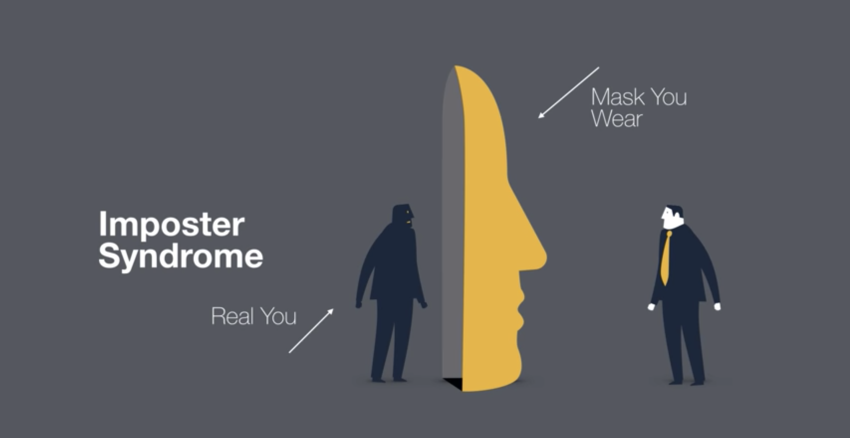Education & Career Trends: November 3, 2022
Curated by the Knowledge Team of ICS Career GPS

Content Credit:
- Article by Darius Foroux, published on medium.com. Original article link.
“Why would people listen to what I have to say?” That is what I (the author) thought when I wanted to write my first book about seven years ago. I went online and did some research and found that’s a common thinking pattern. Even experienced people sometimes feel like they are not worth taking seriously.
This feeling is called impostor syndrome.
A HBR article explains Impostor Syndrome as follows: “a collection of feelings of inadequacy that persist despite evident success.” It is important to realise that low self-esteem and lack of confidence don’t necessarily equate to impostor syndrome.
You can do well and others can celebrate your success, but you still might feel inadequate.
That is why many of those obvious solutions to overcoming impostor syndrome don’t help. It is useful advice, but it won’t help you to overcome a deep sense of not being good enough.
To get over impostor syndrome, we need to understand where it comes from first.
Why high-achievers feel inadequate “despite evident success.”
In The Snowball, Alice Schroeder’s biography of Warren Buffett, the investing legend talked about The Inner Scorecard. To Buffett, whether he does something or not solely depends on whether this action agrees with his Inner Scorecard.
Buffett suggests asking yourself this question:
“If the world couldn’t see your results, would you rather be thought of as the world’s greatest investor but in reality have the world’s worst record? Or be thought of as the world’s worst investor when you were actually the best?”
You can switch “investor” into anything you are aiming to be: Would you rather have other people think you are the best manager / parent / entrepreneur / writer / and so forth, even if you are actually the worst? Or the other way around?
When we rely too much on other people’s opinions, instead of our Inner Scorecard, impostor syndrome settles in.
This idea isn’t new. Philosophers have talked about it since ancient times. The stoic philosopher, Marcus Aurelius, said it well: “It never ceases to amaze me: we all love ourselves more than other people but care more about their opinion than our own.”
What you think of yourself matters more than what others think. It’s about doing things that really matter to you. And not putting too much weight on other people’s opinions.
How to stick to your Inner Scorecard?
Sticking to your Inner Scorecard might sound simple, but it is hard to live by that principle. That could be a reason why there are so many of us who feel they are impostors.
David Goggins’ book, Can’t Hurt Me, has become an instant classic in the world of personal development books.
But when Goggins pitched the book to traditional publishers, he was rejected again and again. From a marketing standpoint, the publishers thought Goggins’ book would have very little appeal.
In an Instagram post, Goggins speculated on the reason publishers were not interested. He’s convinced that publishers thought the story of an African American man would not appeal to a mass audience.
But Goggins believed otherwise. He self-published his book. And it became one of the highest-selling independent books, selling more than 3 million copies.
The man faced a lot of detractors: People who discouraged him from chasing after what matters to him. His response is a great example of not being swayed by these opinions.
While he’s completely different from Buffett who never works out and has the diet of a 25-year-old weightlifter, they are both driven by their Inner Scorecard.
They didn’t let their success pressure them into doing what other people think they should do.
Getting started. And staying grounded.
Can you remain yourself before and after your success? To me, that is more important than succeeding in the first place.
Using your Inner Scorecard to drive yourself toward your goals is useful when you are starting. This allows you to ignore people who discourage you and not overthink how others see you.
Likewise, when you do become successful — would you still be yourself?
You have probably seen how some people do things just to remain in the spotlight. They live their whole lives pleasing others. This is what happens when someone lives by an external scorecard.
Instead, when you live with an inner scorecard, you evaluate yourself based on your values and standards. You become more indifferent to what other people think. That is how you get over impostor syndrome.
You won’t care about people finding out whether you are an impostor or not because deep down, you know that you are as real as they come.
…
Have you checked out yesterday’s blog yet?
Creating a Critical Mass in Consciousness
(Disclaimer: The opinions expressed in the article mentioned above are those of the author(s). They do not purport to reflect the opinions or views of ICS Career GPS or its staff.)



